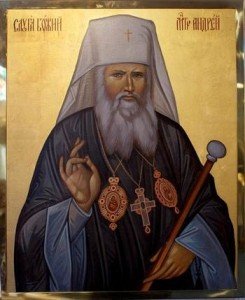In the last issue of this article, I began relating information about our blessed Metropolitan Andrii. He graduated as a lawyer in 1888 and sought dispensation to return to the Ukrainian Catholic tradition of his ancestors. It was at this point that the young Count, in a private audience in the Vatican, advised the Pontiff of his wish to enter the religious life. Pope Leo XIII encouraged him to follow this vocation and, to the chagrin of his father Jan, he entered the Ukrainian Greek-Catholic religious Order of Saint Basil the Great in May of that year.
Adopting the religious name, Andrii, (the first apostle and patron saint of Ukraine), he rose through clerical ranks in a spectacular fashion. Endowed with an above average intellect, he completed a second Doctoral degree and at the age of 31 and was then nominated Hegumen (Superior) of the Basilian monastery in L’viv. By the age of 34 he was Eparch of Stanyslaviv and, one year later in 1900, was installed as the Metropolitan of Galicia. Thus he became Head of the Ukrainian Greek-Catholic Church, the largest of the Eastern Catholic Churches.
For 44 years he was the most identifiable symbol not only of Ukrainian Greek-Catholicism but also of Ukrainian nationalism. He was a tireless and powerful force in the ecumenical movement striving for a greater degree of understanding between Catholic and Orthodox faithful. His defense of his Church and “his Ruthenian people” (as they were known by Rome) had seen him on a number of occasions and by various occupying governments: imprisoned, interrogated and exiled. The Ukrainian Greek- Catholic faithful thus saw in their Metropolitan a man who would risk his own life for the Gospels and for them.
He was also a great defender of marginalized peoples, in particular of the Jewish population of Galicia. The exact root and reasons for his great compassion for the Jewish people, a minority group in Western Ukraine, will probably never be known, yet some critical events can be highlighted. It was while during a period of convalescence in the Carpathian resort of Zakopane in 1885, that he began learning Hebrew, and quickly learnt how to read, write and speak this ancient language.
Therefore when in 1903 a Jewish group lobbied him to assist the Jewish poor, he lent support and, in a letter written in Hebrew, apologized that at the time he could do no more. He then established a clinic, called Narodna Lichnytsia, which treated all peoples.
More to follow!

